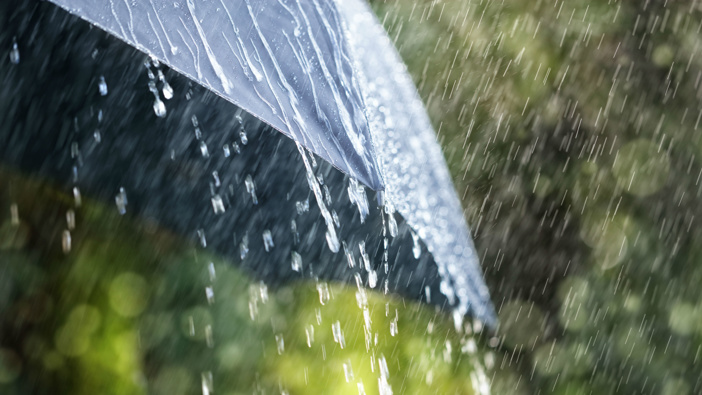Speaking of the bad weather, it brings me to the emergency mobile alerts. The emergency mobile alerts came about because Fire and Emergency and the National Emergency Management Agency and other agencies including New Zealand Police, Ministry of Primary Industries and Ministry of Health use emergency mobile alerts to alert people if their lives, property or health are at serious risk.
I'm pretty sure they came about during Covid, I can't recall them before then you might, but I think it was pretty much a Covid response and that's continued to include any other times where lives, property or health are at serious risk. Over the past week.
Aucklander’s have received about four or five emergency alerts on their phones, and I'll tell you what, they give you an absolute conniption when they start screeching. You know it takes you right back, the adrenaline surges through, you think, fight or flight ... okay there's bad weather coming. Well, yes, a cyclone had been forecast to be arriving over the North Island. So, you would imagine with a tropical cyclone bad weather comes - thunderstorms, the potential for flooding.
And then the next lot of emergency alerts came to warn of the potentials of dangerous gases as a result of a recycling plant in a suburb of Auckland going up in flames and once that fire started, many, many suburbs around the fire were advised to stay inside and then another alert gave the all clear sometime later.
I do understand that Civil Defence is damned if they do and damned if they don't. Some Aucklander’s were asking why they weren't warned about the severe thunderstorms and deluges on the Friday night of Easter weekend. But surely, we all knew that a cyclone was sitting over the North Island, and cyclones bring rain and thunderstorms. But there was criticism because they hadn't been warned, so therefore we got warnings up the Ying Yang in response.
Meteorologists defended themselves, saying well, thunderstorms are notoriously difficult to predict, and weather is notoriously difficult to predict. We saw that with Gabrielle as well. In February 2023, the Esk River in Hawkes Bay burst its banks and flooded the entire valley. Hundreds of Hawkes Bay residents woke in the middle of a nightmare, with water surging through their homes, and there was no alert, no warning, they hadn't been evacuated from the area, and yet the cyclone had been predicted. Schools had been closed in Hamilton and Tauranga and those areas were unaffected but Hawkes Bay was absolutely hammered. It's an imperfect science, an imprecise and inexact science.
Are we depending far too much on meteorologists who can give you a broad spectrum? - we can expect thunderstorms, we can expect electric storms, we can expect heavy rain over the next week, we can't tell you that it's going to arrive at your house at this time, so be prepared. And I wonder if too many people are expecting that from authorities and from decision makers.
We've become very used to having people tell us what we should do, how we should do it, to keep ourselves safe. I'm not entirely sure you can do that with weather. It is unpredictable. It changes. Meteorologists will tell you that they can really only give you a broad spectrum. And if you're depending on government agencies to tell you what to do and where to go and how you should cope, I think that way lies disaster, really. Because you'll think, well, I haven't had a warning, so I should be fine. People will let me know if I'm in danger and you start to lose your Spidey instinct, you start to lose your Spidey senses.
Too many alerts are going to mean that people will just switch off. They'll either switch off their phones and say I'm not going to have my heart racing and my pulse racing and the adrenaline surging through me for a fire that's happening ten suburbs over that really doesn't affect me. If we start to switch off, then again, emergency services will be blamed because they sent out too many. I suppose it's helpful having someone to blame other than God and the weather?
But when did weather become such a big deal that it dominates the news. Meteorologists are becoming the new public health officials. And when did we stop using our common sense and relying on government agencies to tell us what to do in weather. Do you need to know through your emergency mobile alerts, what is happening? Does that give you the opportunity to take precautions? What purpose does the agency serve? I'd really love to hear your thoughts on this one.
Take your Radio, Podcasts and Music with you










